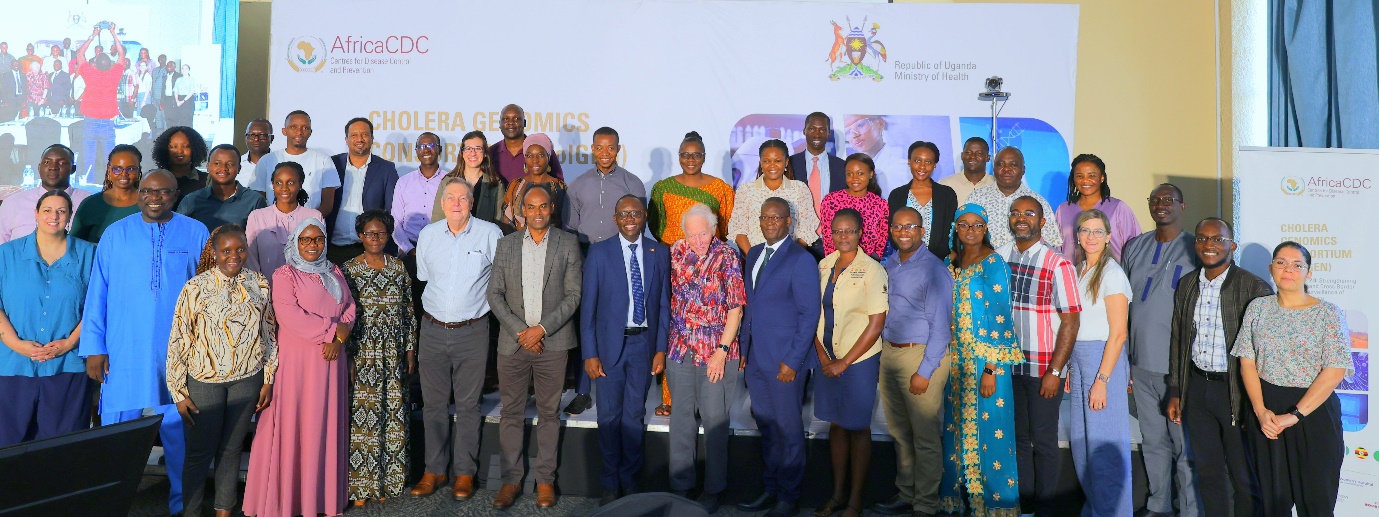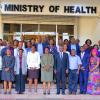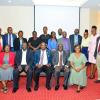CholGEN Meeting Concludes with Strong Commitments on Cholera Control
13th MAR, 2025 - SERENA HOTEL Uganda The three-day Annual CholGEN meeting concluded on a high note, with experts reaffirming their commitment to leveraging genomic research in the fight against cholera in Africa. Scientists, policymakers, and global health stakeholders gathered to discuss advancements in cholera surveillance, control in Africa.
The meeting was officially closed by Director of Public Health at the Ministry of Health Dr. Daniel Kyabayinze, who revealed that Uganda has signed the Pandemic Agreement on Access and Benefit Sharing, which will greatly build on the CholGEN work. He also called for the elimination of cholera.
"We have had enough efforts of control; we now want to work towards elimination of Cholera in Uganda".
Dr. Yenew Kebede, Director of the Center for Laboratory and Diagnostics at Africa CDC, underscored the significance of CholGEN’s research outcomes in shaping Africa’s public health response.
“CholGEN’s findings will drive vaccine development for Africa and continue to identify disease pathogens quickly before they become regional threats,” he stated.
Dr. Duncan Steele, Deputy Director at the Gates Foundation, called for urgent and coordinated action to eliminate cholera, a disease that has plagued humanity for over a millennium.
“Now that there has been technological advancement and new tools to control cholera, we must make a concerted effort to end this 1,000-year-old scourge,” he urged.
He also noted that cholera, one of the oldest known infectious diseases, was first reported in Egypt in the 4th century BC.
Dr. Isaac Ssewanyana, Laboratory Director at NHLDS, explained that Uganda has already leveraged genomics for surveillance, outbreak control, and antimicrobial resistance (AMR) monitoring. He emphasized that this demonstrates great potential for the continent if African countries maximize their expertise, tools, and innovation.
“Uganda’s experience shows that when African nations invest in genomic technology and put it to optimal use, we can revolutionize disease control and response,” he stated.
The meeting concluded with a call to action for increased investment in research, improved surveillance systems, and stronger public-private partnerships to accelerate cholera control measures.




